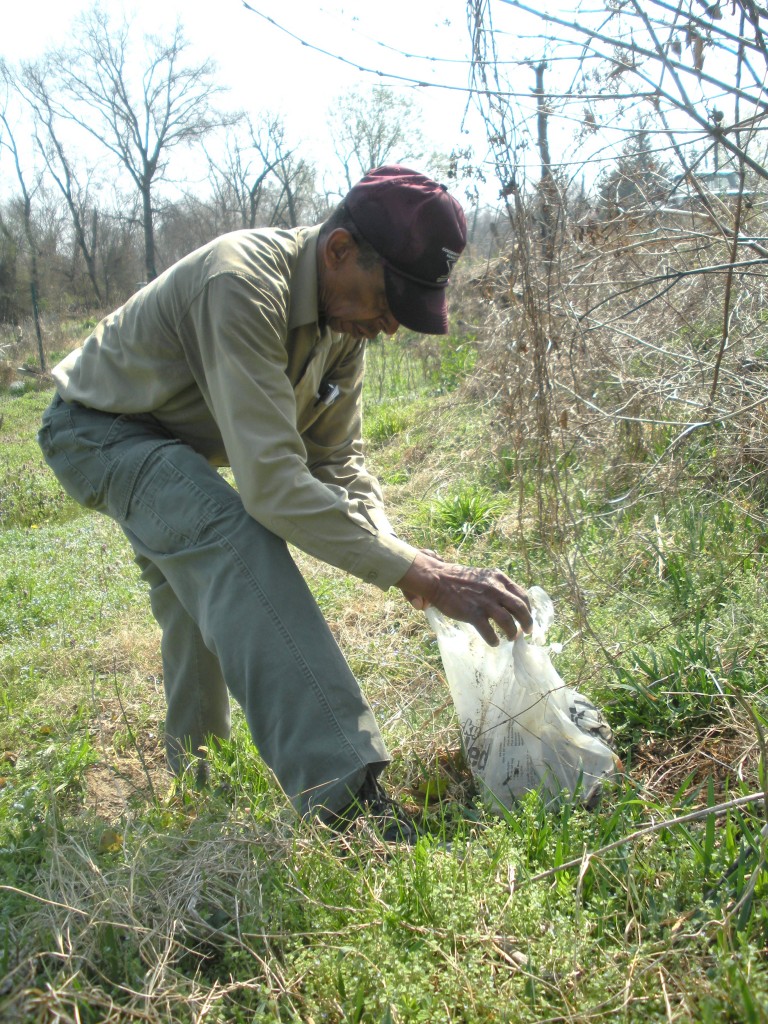By Wayne Savage
Growing up on the outskirts of a Midwestern college town in the 1960s and ’70s, I was thoroughly unimpressed with my father’s annual ritual of putting in a vegetable garden. To me, it was just … work. But my father, an agrarian native of the Arkansas Ozarks, was immensely proud of his fresh sweet corn and tomatoes.
One of his colleagues who lived in the middle of town went even further, converting his entire backyard into a vegetable garden, complete with a vast crop of shoulder-high sweet corn. No doubt his neighbors thought he was a bit odd. But really he and my father were 30 years ahead of their time, considering today’s trend toward local and organic food production.
In the District of Columbia, the trend is seen in the burgeoning popularity of our 36 community gardens spread over the city on open land provided by the D.C. government and the National Park Service. A typical plot of 625 square feet rents for just $30 for the annual growing season. Water is included.

Jerome Manigan clears debris from his plot at the Blair Road Community Garden in preparation for planting. Manigan, who has had a plot at the Blair Road site for more than 20 years, plans to grow onions, tomatoes, okra, squash, green beans, and peppers, with a fall crop to follow that includes mustard and collard greens. (Photo by Wayne Savage)
The traditional and the trendy meet in D.C.’s community gardens, where middle-age and elderly men and women who have grown vegetables for years ─ often relying on deep cultural knowledge passed down for generations ─ mingle with 20-something urban hipsters who view producing their own food as part of an eco-friendly lifestyle.
An excellent list of the city’s community gardens can be found at the website of D.C.’s Field to Fork Network. Complete with contact information, photos, and a detailed description of each garden, the list was compiled by the Neighborhood Farm Initiative, a non-profit project that promotes small-scale food production in the Washington area.
A census conducted by the Neighborhood Farm Initiative in 2010 found that most of the city’s community gardens have waiting lists, which suggests that additional gardens are needed. Indeed, one garden manager I spoke with implored me not to make any referrals to him, as he already has all he can handle.
With that in mind, residents interested in joining a community garden can expect stiff competition, and perhaps a long wait, for vacant plots. Good to know that the Neighborhood Farm Initiative has produced a guide for starting new community gardens.
Many resources are available in the District of Columbia to aspiring gardeners, whether they rent space in a community garden or just set up improvised containers on a back porch or condo balcony. A good starting point for gardening news and advice is the D.C. Urban Gardeners Yahoo group. Recent postings have included the best time to plant potatoes, an offer of free compost, and an earnest discussion of the finer points of mulch.
Every February, various organizations collaborate through the Field to Fork Network to put on the free Rooting DC Forum, which offers a wealth of information about urban gardening in Washington. Check out this helpful guide, distributed at last month’s forum, describing “The 10 Easiest Vegetables to Grow.”
But first things first: What about seeds? I recommend Baker Creek Heirloom Seeds and Southern Exposure Seed Exchange, both of which promote heirloom varieties and seeds that are not genetically engineered. Baker Creek states in its catalog that it “boycott[s] all gene-altering companies” and Southern Exposure, based in Mineral, Va., has joined with 82 other plaintiffs in a lawsuit filed by the Public Patent Foundation to challenge Monsanto Co.’s patents on genetically modified seed.
Once the harvest begins, no D.C. gardener should overlook our state fair. Yes, D.C. has a state fair! Now in its third year, this year’s fair will be from 11 a.m. to 5 p.m. Sept. 22 at the Barracks Row Fall Festival on Eighth Street S.E. just south of the Eastern Market Metro station. The fair features contests for vegetables, baked goods (cupcakes!), and crafts.
Update (April 10, 2012): The D.C. Urban Gardeners Yahoo site has announced the opening of a new community garden at 14th and Euclid streets in Columbia Heights. The Euclid Street Community Garden is open to those who live within a one-mile radius. An organizing meeting will be held at 7 p.m. Tuesday, April 17, at the Columbia Heights Community Center, 1480 Girard Street N.W.
Wayne Savage is the owner of Mid-Atlantic Litter Cleanup Service. He rents a plot at the Peabody Garden Club, where he grows heirloom vegetables and an occasional novelty crop such as cotton or popcorn.

